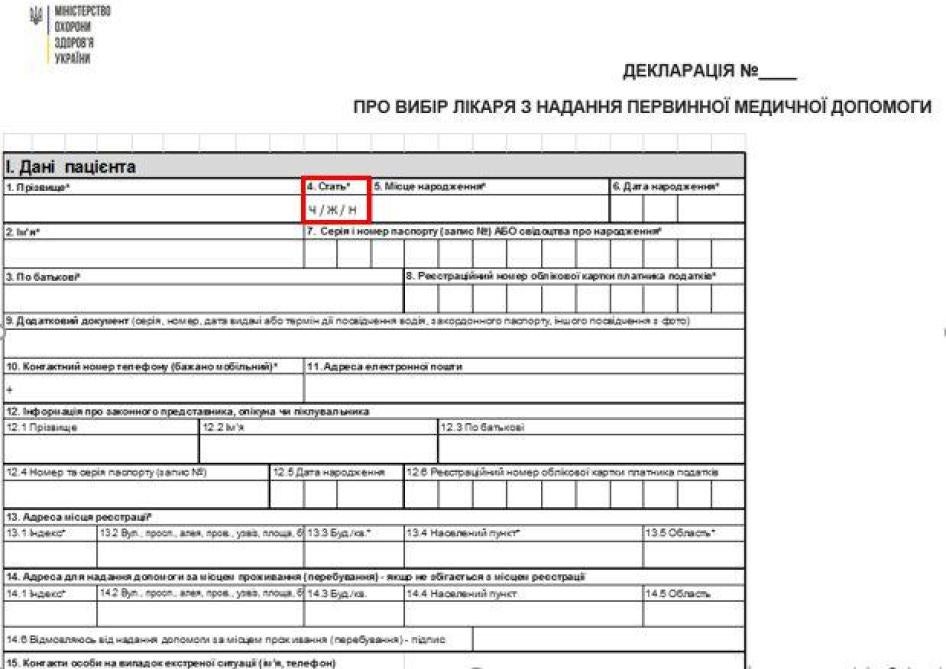Ukraine has taken another significant step toward the protection and inclusion of the country’s lesbian, gay, bisexual, and transgender (LGBT) people. In early February, the Ministry of Health released for public discussion a draft medical form for patients choosing a family doctor, as part of broader healthcare reform. In the proposed form, a Ukrainian can choose to indicate which gender they are – female or male – or choose not to indicate their gender, option N.
If the form is adopted, for the first time in Ukraine, people who do not identify as male or female will be able to fill out an official document that acknowledges their gender identity. The transgender community is diverse, and precisely how their gender identity differs from their sex assigned at birth differs from person to person. This community includes gender variant people, whose gender identity may be somewhere on the spectrum between male and female, as well as people who may not define in terms of either male or female.
Principle 3 of the Yogyakarta Principles on the application of international human rights law to sexual orientation and gender identity affirms that people’s self-identified gender identity “is integral to their personality and is one of the most basic aspects of self-determination, dignity and freedom.”
The inclusive medical form proposed in Ukraine is a step towards ensuring people’s gender identity is respected in the process of accessing health care. Gender identity and its recognition are an essential part of any person’s wellbeing and a basic human right. Ukraine’s Ministry of Health is showing leadership in promoting respect for all Ukrainians by developing procedures and documents that recognize their diversity and fundamental right to self-expression and identity. One hopes that after the public discussion ends in March, the ministry will adopt the simple change to the form that will nonetheless have far-reaching effects.








